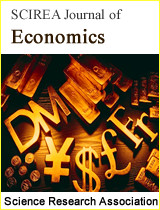The Unbreakable Nexus: Harnessing Governance Mechanisms to Curb Tax Evasion
DOI: 10.54647/economics790430 54 Downloads 182579 Views
Author(s)
Abstract
This work examines the main determinants of tax evasion within publicly traded companies. The literature review indicates that there are several practices used by Tunisian companies to eliminate their tax obligations, including group size, profitability, intangible assets and debts. Thus, this study aims to obtain empirical evidence on the effect of corporate governance mechanisms on tax evasion, which becomes a proxy for the current ETR (effective tax rate). The samples for this study consisted of 20 manufacturing companies listed on the Tunisian Stock Exchange between 2012 and 2022. Hypothesis testing used multiple regression analysis. The result of this study shows that the percentage of shares held by members of the board of directors and the percentage of institutional shareholding have a positive effect on tax evasion in part, but that the number of board members administration and the percentage of independent members do not have a simultaneous effect in defining tax evasion.
Keywords
Tax evasion, Corporate governace, board members administration.
Cite this paper
Nesrine Dardouri, Mounir Smida,
The Unbreakable Nexus: Harnessing Governance Mechanisms to Curb Tax Evasion
, SCIREA Journal of Economics.
Volume 8, Issue 6, December 2023 | PP. 222-238.
10.54647/economics790430
References
| [ 1 ] | Ameen, M., Lear, J. T., Madan, V., Mohd Mustapa, M. F., Richardson, M., Hughes, J. R., ... & Exton, L. S. (2014). British Association of Dermatologists' guidelines for the management of onychomycosis 2014. British Journal of Dermatology, 171(5), 937-958. |
| [ 2 ] | Aissi, H., Bazgan, C., & Vanderpooten, D. (2009). Min–max and min–max regret versions of combinatorial optimization problems: A survey. European journal of operational research, 197(2), 427-438. |
| [ 3 ] | Bahl, N., Winarsih, I., Tucker-Kellogg, L., & Ding, J. L. (2014). Extracellular haemoglobin upregulates and binds to tissue factor on macrophages: implications for coagulation and oxidative stress. Thrombosis and haemostasis, 111(01), 67-78. |
| [ 4 ] | Budiman, J. (2012). Pengaruh karakter eksekutif terhadap penghindaran pajak (Tax avoidance) (Doctoral dissertation, Universitas Gadjah Mada). |
| [ 5 ] | Babajani, J. A. F. A. R., & Abdi, M. A. J. I. D. (2010). Relationship between corporate governance and enterprises taxable profit. Financial Accounting Research, 2(3), 65-86. |
| [ 6 ] | Dhaliwal, D. S., Li, O. Z., Tsang, A., & Yang, Y. G. (2011). Voluntary nonfinancial disclosure and the cost of equity capital: The initiation of corporate social responsibility reporting. The accounting review, 86(1), 59-100. |
| [ 7 ] | Fadhilah, R. (2014). Pengaruh good corporate governance terhadap tax avoidance (Studi empiris pada perusahaan manufaktur yang terdaftar di BEI 2009-2011). Jurnal akuntansi, 2(1). |
| [ 8 ] | Garces, J. M., Sartori, M., & Freitag, H. (2020). Integrative taxonomy of the genus Dudgeodes Sartori, 2008 (Insecta, Ephemeroptera, Teloganodidae) from the Philippines with description of new species and supplementary descriptions of Southeast Asian species. ZooKeys, 910, 93. |
| [ 9 ] | Gao, T., Yao, H., Song, J., Liu, C., Zhu, Y., Ma, X., ... & Chen, S. (2010). Identification of medicinal plants in the family Fabaceae using a potential DNA barcode ITS2. Journal of ethnopharmacology, 130(1), 116-121. |
| [ 10 ] | Hanlon, M., & Heitzman, S. (2010). A review of tax research. Journal of accounting and Economics, 50(2-3), 127-178. |
| [ 11 ] | Imani, D., Azimi, A., Salehi, Z., Rezaei, N., Emamnejad, R., Sadr, M., & Izad, M. (2018). Association of nod‐like receptor protein‐3 single nucleotide gene polymorphisms and expression with the susceptibility to relapsing–remitting multiple sclerosis. International journal of immunogenetics, 45(6), 329-336. |
| [ 12 ] | Jamei, R. (2017). Tax avoidance and corporate governance mechanisms: Evidence from Tehran stock exchange. International Journal of Economics and Financial Issues, 7(4), 638-644. |
| [ 13 ] | King, R. B., Ray, J. M., & Stanford, K. M. (2006). Gorging on gobies: beneficial effects of alien prey on a threatened vertebrate. Canadian Journal of Zoology, 84(1), 108-115. |
| [ 14 ] | Lanis, R., & Richardson, G. (2011). The effect of board of director composition on corporate tax aggressiveness. Journal of accounting and Public Policy, 30(1), 50-70. |
| [ 15 ] | Minnick, K., & Noga, T. (2010). Do corporate governance characteristics influence tax management?. Journal of corporate finance, 16(5), 703-718. |
| [ 16 ] | Maleki, M., Rakhshande, H., Layegh, P., Mashayekhi, V., & Seyedi, S. Z. (2015). A comparison between intralesional glucantime and combined use of topical Berberis vulgaris root extracts and intralesional glucantime in the treatment of cutaneous leishmaniasis. Avicenna Journal of Phytomedicine, 5. |
| [ 17 ] | Rego, S. O., & Wilson, R. (2012). Equity risk incentives and corporate tax aggressiveness. Journal of Accounting Research, 50(3), 775-810. |
| [ 18 ] | Rücker, M., Berg, S., Armstrong, R. T., Georgiadis, A., Ott, H., Schwing, A., ... & Kersten, M. (2015). From connected pathway flow to ganglion dynamics. Geophysical Research Letters, 42(10), 3888-3894. |
| [ 19 ] | Simanjuntak, T. H., & Mukhlis, I. (2013). Analysis of Tax Compliance and Impacts on Regional Budgeting and Public Welfare. BISNIS & BIROKRASI: Jurnal Ilmu Administrasi Dan Organisasi, 19(3), 5. |
| [ 20 ] | Simarmata, A. P. P., & Cahyonowati, N. (2014). Pengaruh Tax Avoidance Jangka Panjang Terhadap Nilai Perusahaan Dengan Kepemilikan Institusional Sebagai Variabel Pemoderasi (Studi Empiris Pada Perusahaan Manufaktur yang terdaftar di BEI periode 2011-2012) (Doctoral dissertation, UNDIP: Fakultas Ekonomika dan Bisnis). |
| [ 21 ] | Sellami, F., Jarboui, R., Hachicha, S., Medhioub, K., & Ammar, E. (2008). Co-composting of oil exhausted olive-cake, poultry manure and industrial residues of agro-food activity for soil amendment. Bioresource technology, 99(5), 1177-1188. |

